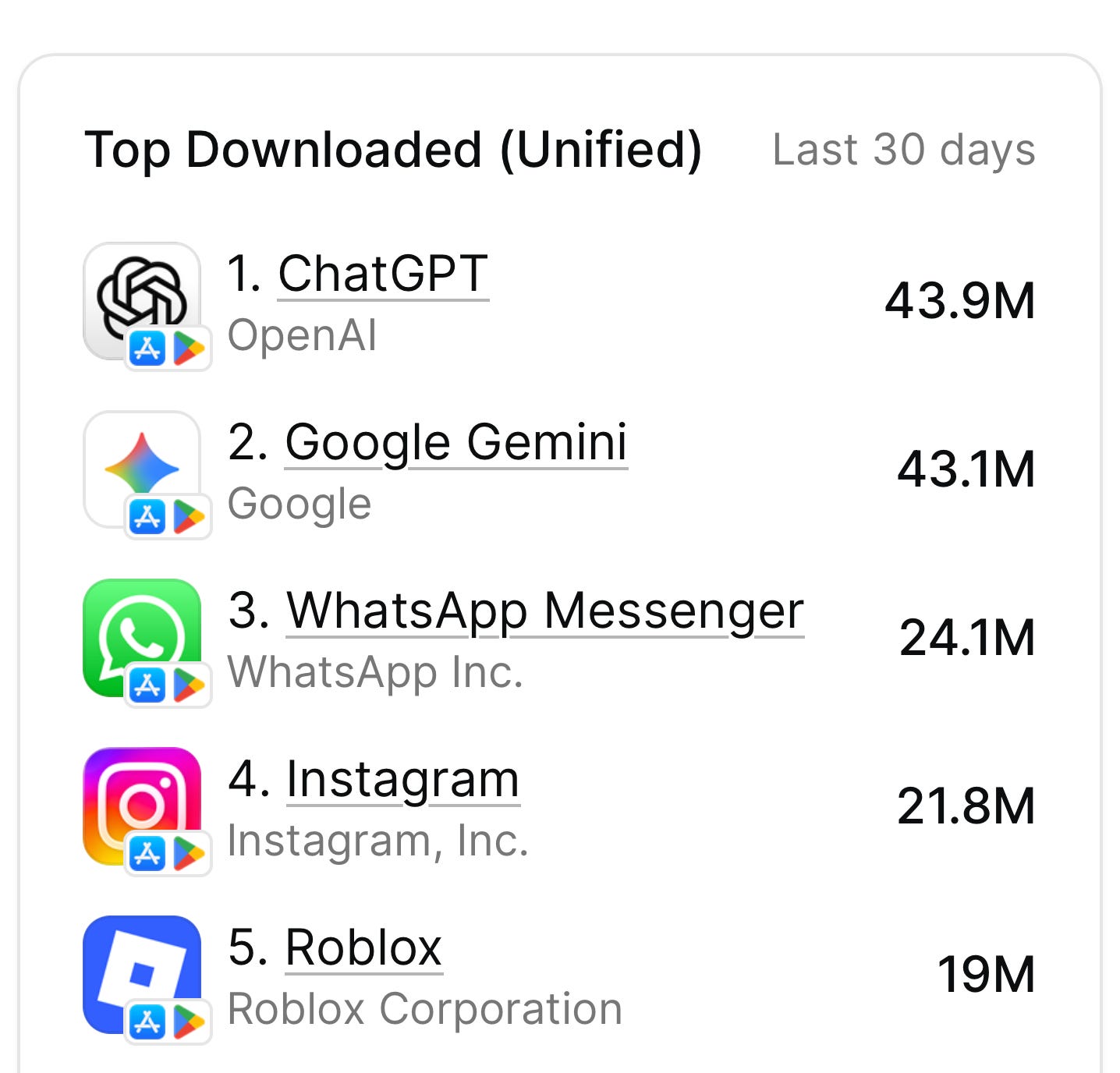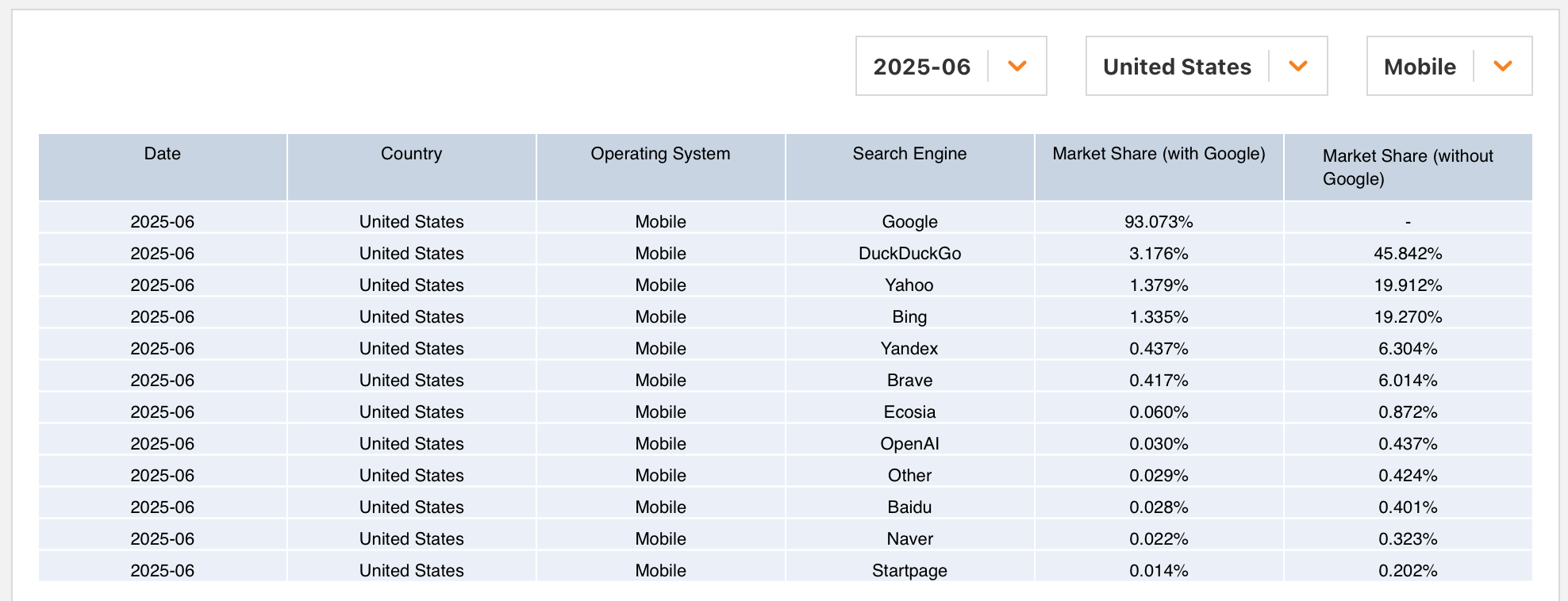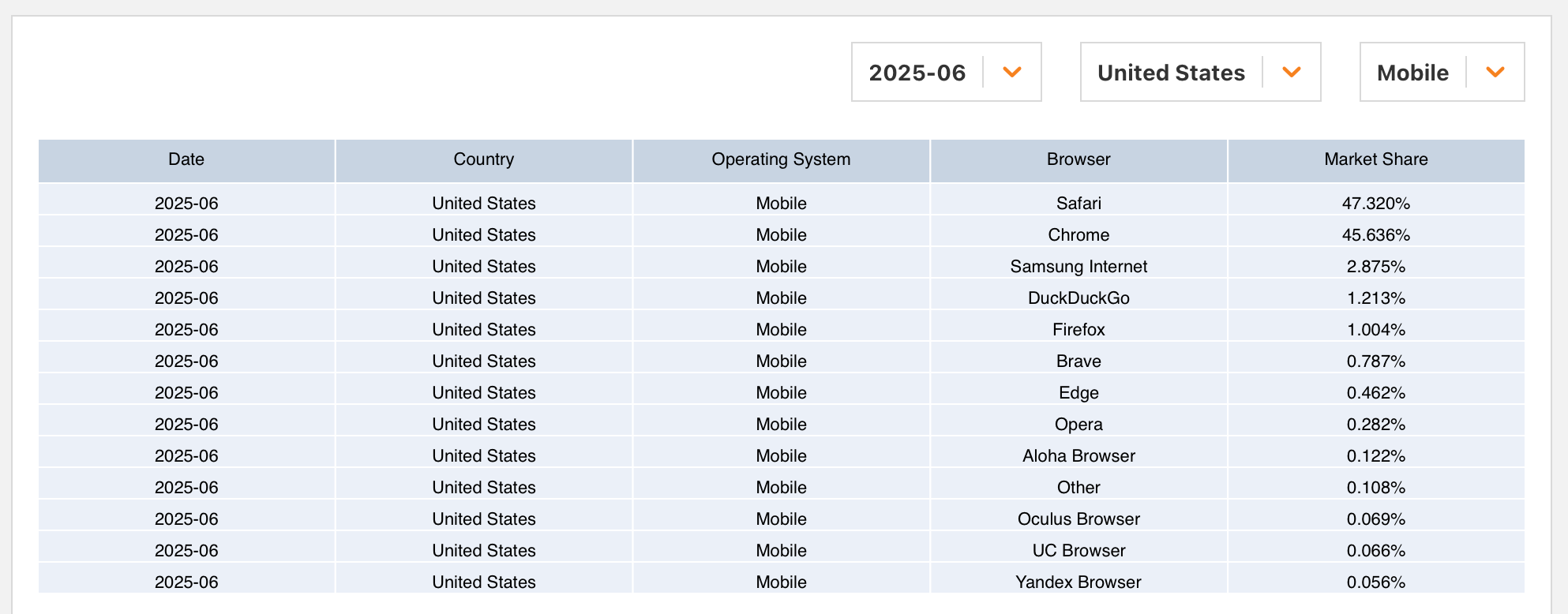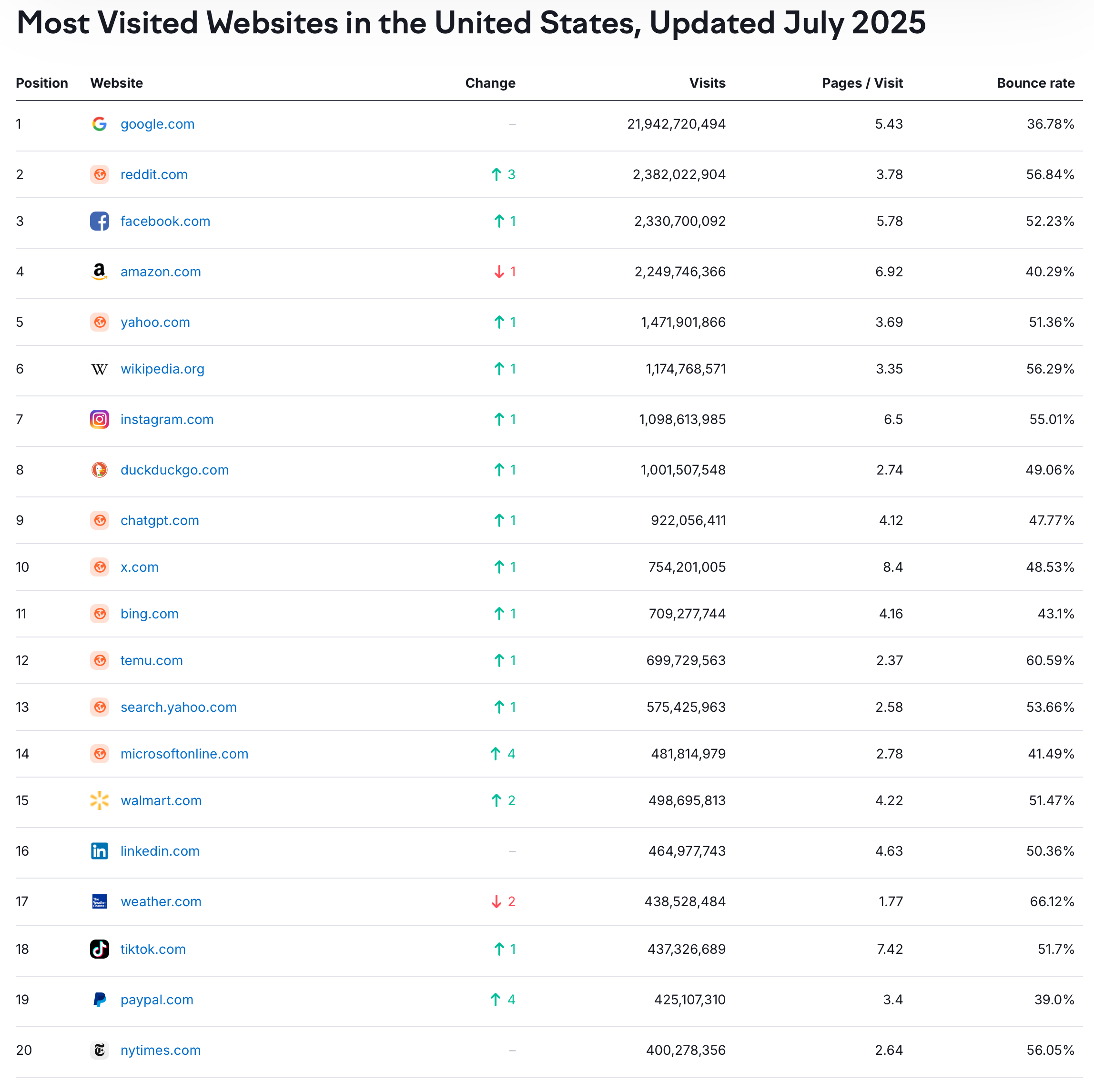Is consumer AI heading for a duopoly?
Innovative partnerships and consolidation could drive a more competitive outcome.
Fifteen years ago Google started using their search monopoly to create a browser monopoly by pushing people to use Chrome through in-product promotions in Google search. It worked. Now they’re repeating that same playbook for consumer AI with Gemini and it’s working again.
In the last 30 days, Gemini has been downloaded about the same amount of times as ChatGPT, and nothing else is even close.

While ChatGPT had a massive head start, Google is rapidly turning consumer AI into a duopoly. Despite endless headlines mentioning Anthropic, Perplexity, and others, none of the alternatives seem to be meaningfully gaining market share right now relative to ChatGPT, except Gemini. The reason is simple: the others don’t have the distribution channels to match Google’s.
The next phase of consumer AI competition will favor Google even more. As I recently noted, consumer internet workflows increasingly span across search, browsing, and AI. Who has the most entrenched position in search and browsing to complement consumer AI? Google. For example, their monopoly browser (Chrome) can get AI features to most consumers the fastest.
Google’s ability to leverage its market position to distribute its own AI products continues unabated, and U.S. v. Google made clear that distribution powers a scale advantage. That is, Google’s search assets are not easily replicable because of the vast user engagement data Google alone possesses. And an increasing number of sites don’t even allow web crawlers or access to their content except for Google.
We shouldn’t settle for a shift from Google’s search monopoly to an AI duopoly. Thus far, regulators have only addressed Google’s advantages at the margins. There remains time to address these dynamics and unlock innovation.
One possible (non-regulatory) response is deeper partnerships and consolidation between the other AI companies, search engines, and browsers in an effort to compete more with more scale in this new market. This has already started around the edges, for example we (at DuckDuckGo) have partnered with You.com to develop a better news search index and are looking to partner with others to advance the web index we’ve been working on, as well as to enhance our browser and AI features. But the market is ripe for larger deals.
To see where those might come from, here’s the top mobile (consumer AI is used primarily on mobile) search engines in the U.S. according to Cloudflare, who sees the most traffic. Google is #1, followed by us (DuckDuckGo) at #2, then Yahoo and Bing. Everyone else is sub 1%.

Similarly, here’s the top mobile browsers in the U.S. Safari and Chrome dominate, followed by Samsung Internet, DuckDuckGo and Firefox above 1%.

And finally, here are the top 20 consumer web destinations in the U.S., according to SEMRush. The top ten are Google, Reddit, Facebook, Amazon, Yahoo, Wikipedia, Instagram, DuckDuckGo, and ChatGPT.

Partnerships and consolidation between these companies could produce some more effective competition. So far, consumer AI has actually driven more traditional search and browser usage, not less. We see that in our numbers, and SparkToro reports similar for others. AI is driving people to do more information seeking in general, and as mentioned those workflows increasingly span across search, browsing, and AI. The best experiences seamlessly blend all three in the browser, and so it is natural companies with assets in some of the three areas would want to partner with companies with non-overlapping assets. Additionally, a company with a large consumer user base could help directly drive distribution of consumer AI, browsers, and search engines, especially if that company has unique content assets.
A duopoly in consumer AI will not just be bad for innovation, but will further erode privacy. That’s why I believe DuckDuckGo will remain an important alternative regardless of what happens, but I’m still a little hopeful that innovative partnerships and consolidation could challenge the rapidly emerging consumer AI duopoly.


Do you think that, following last week’s corporate announcement on restructuring, that Open AI and/or Microsoft may be seeking AI alliances?
Didn't expect this take on the subject, but you're spot on. Google's distribtuion strategy is formidable. It's truly dificult for anyone to compete with their data access and scale for model training.